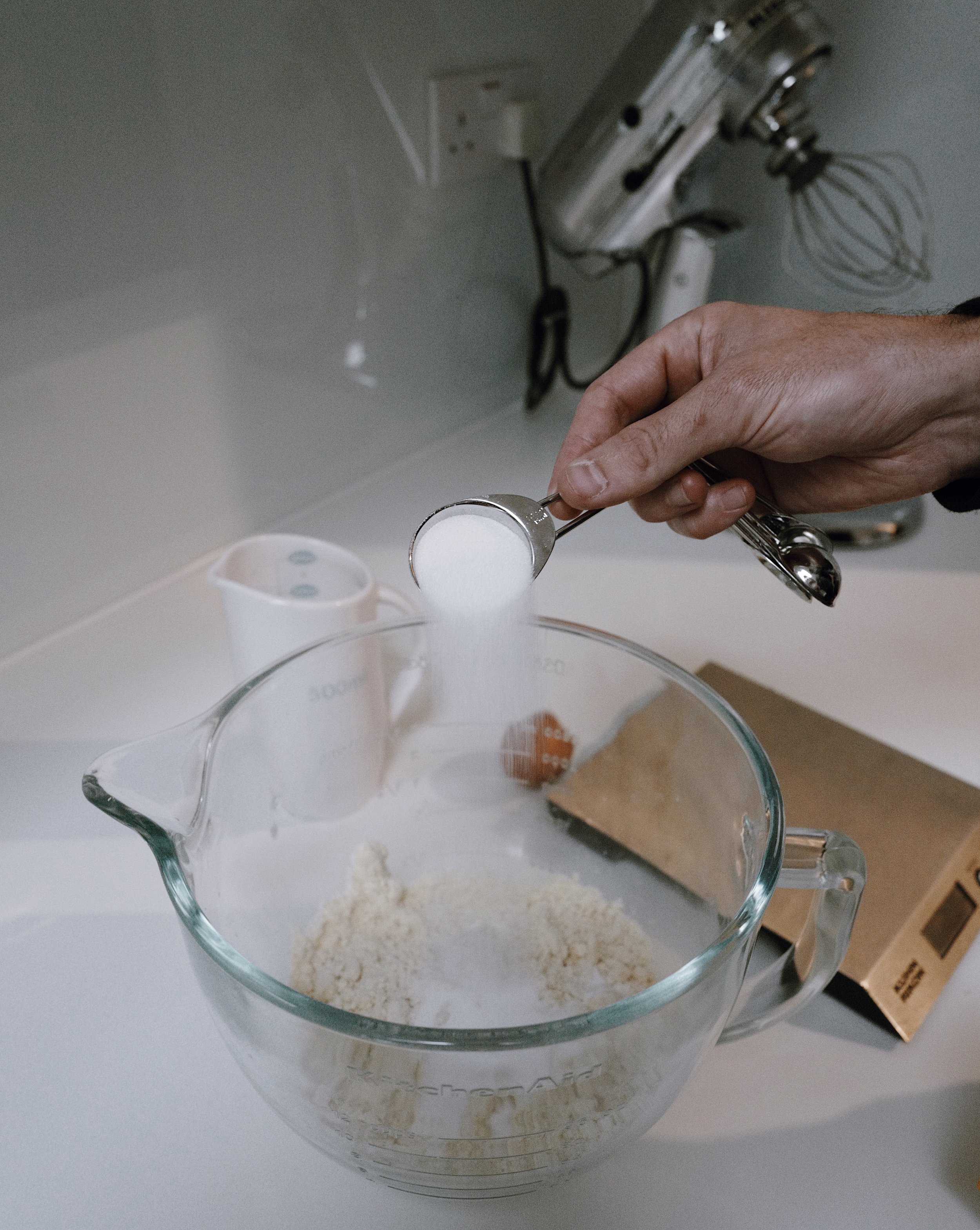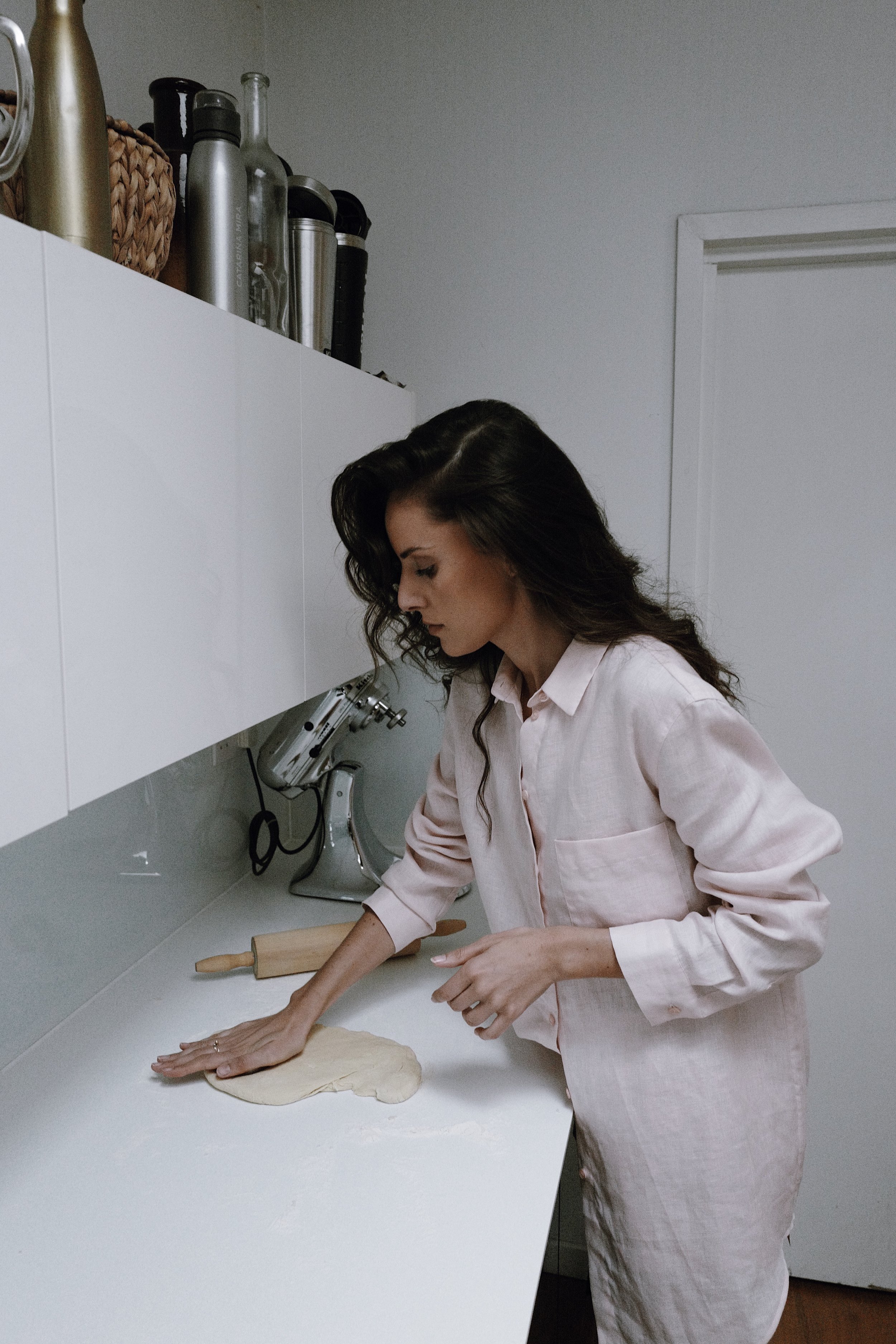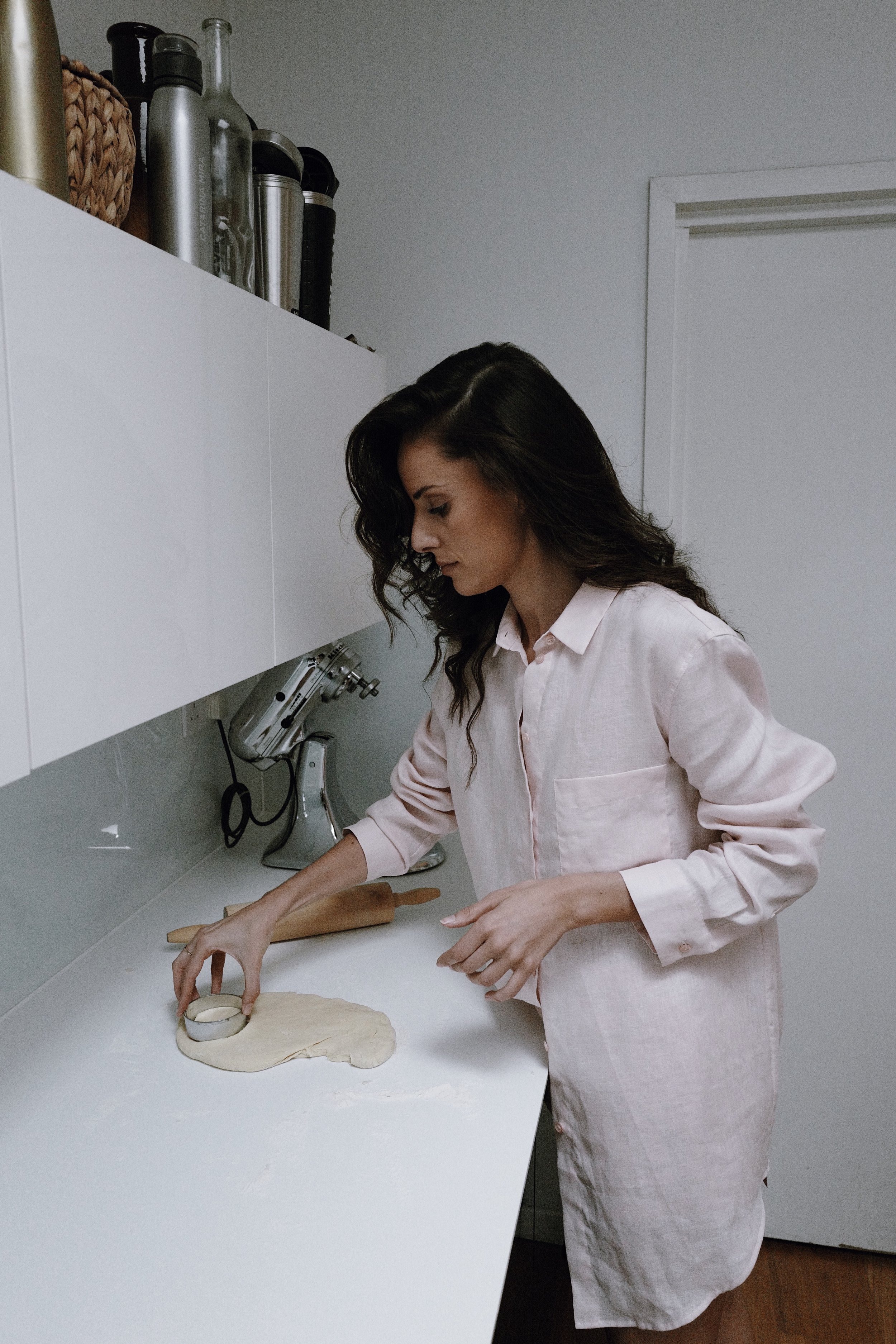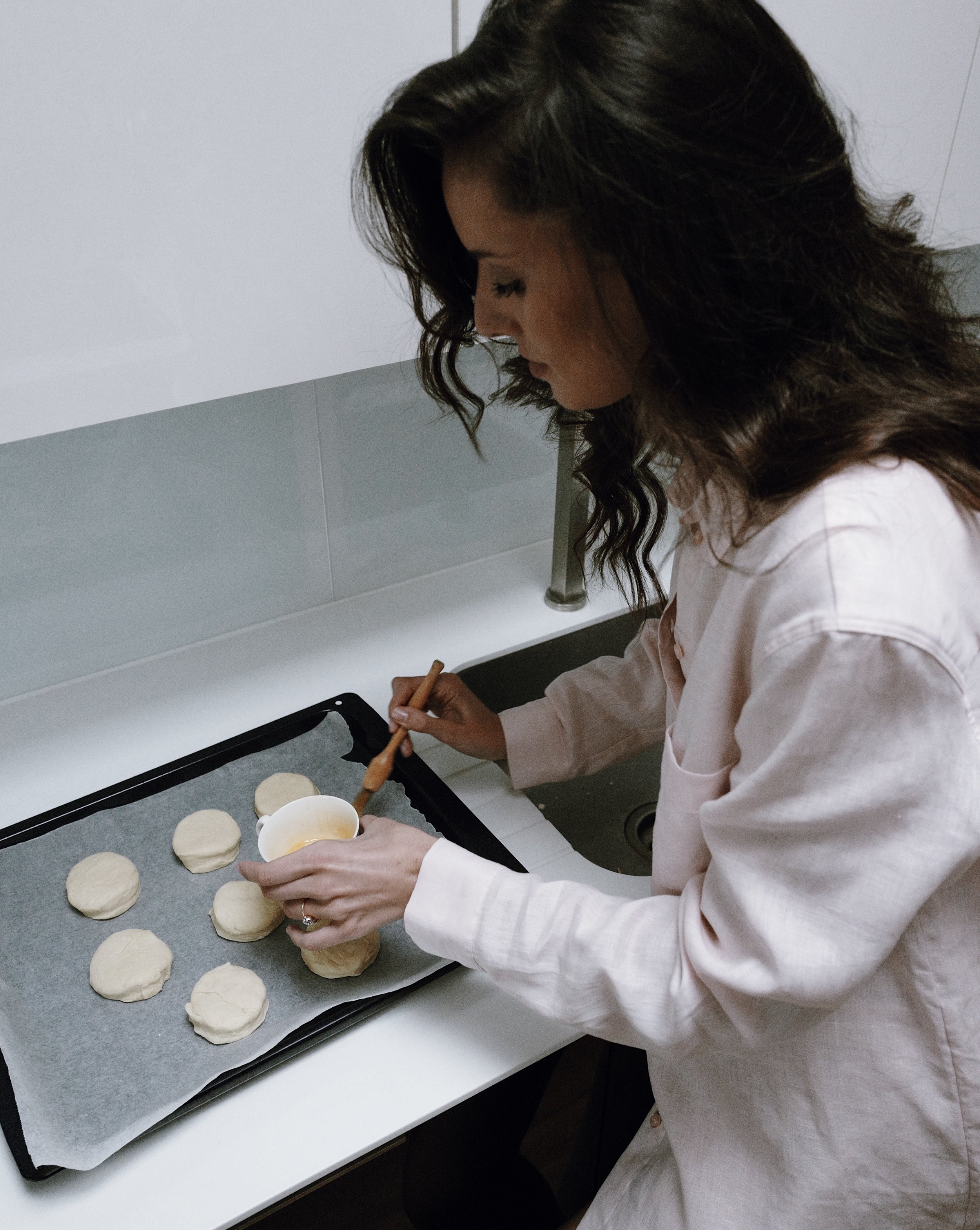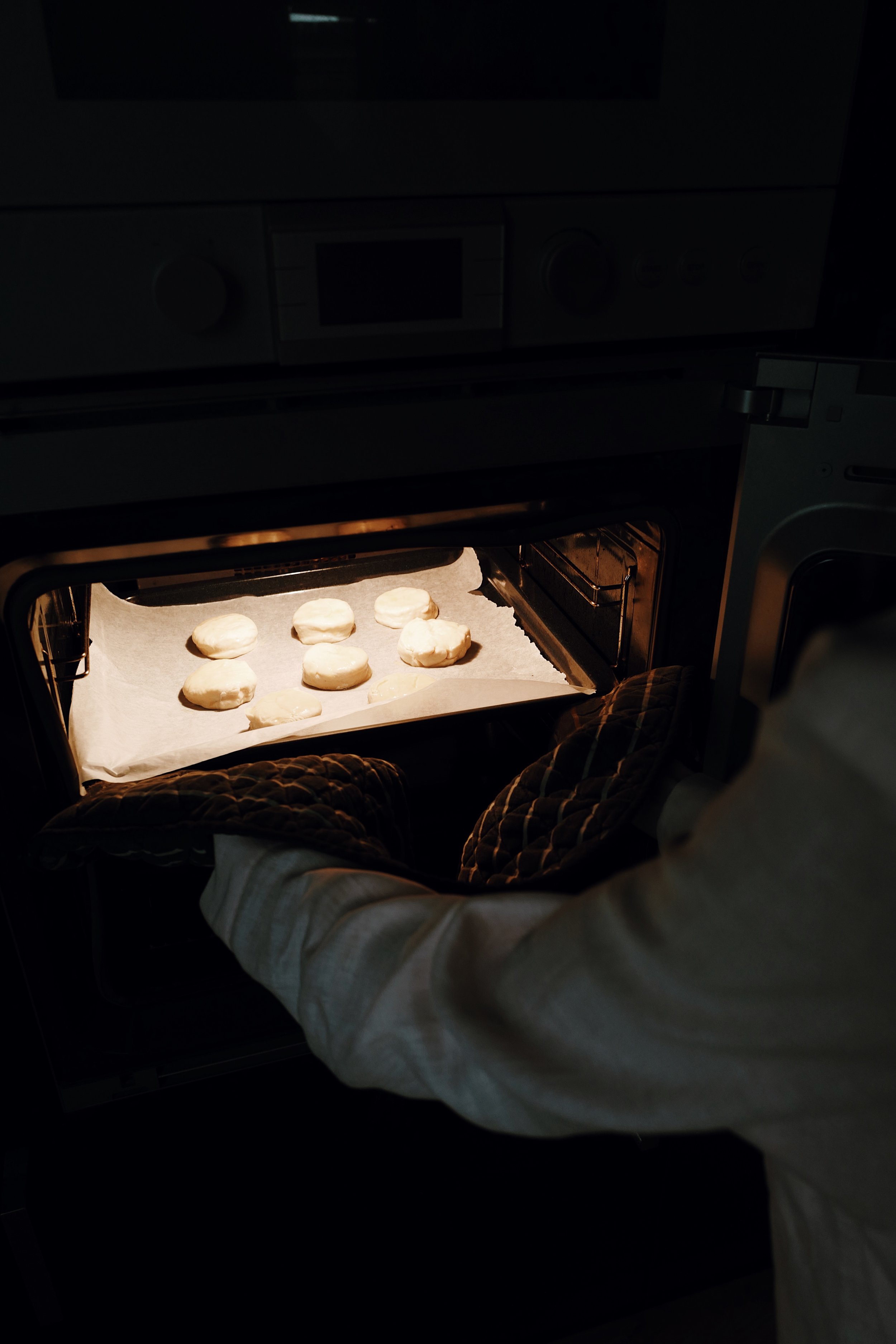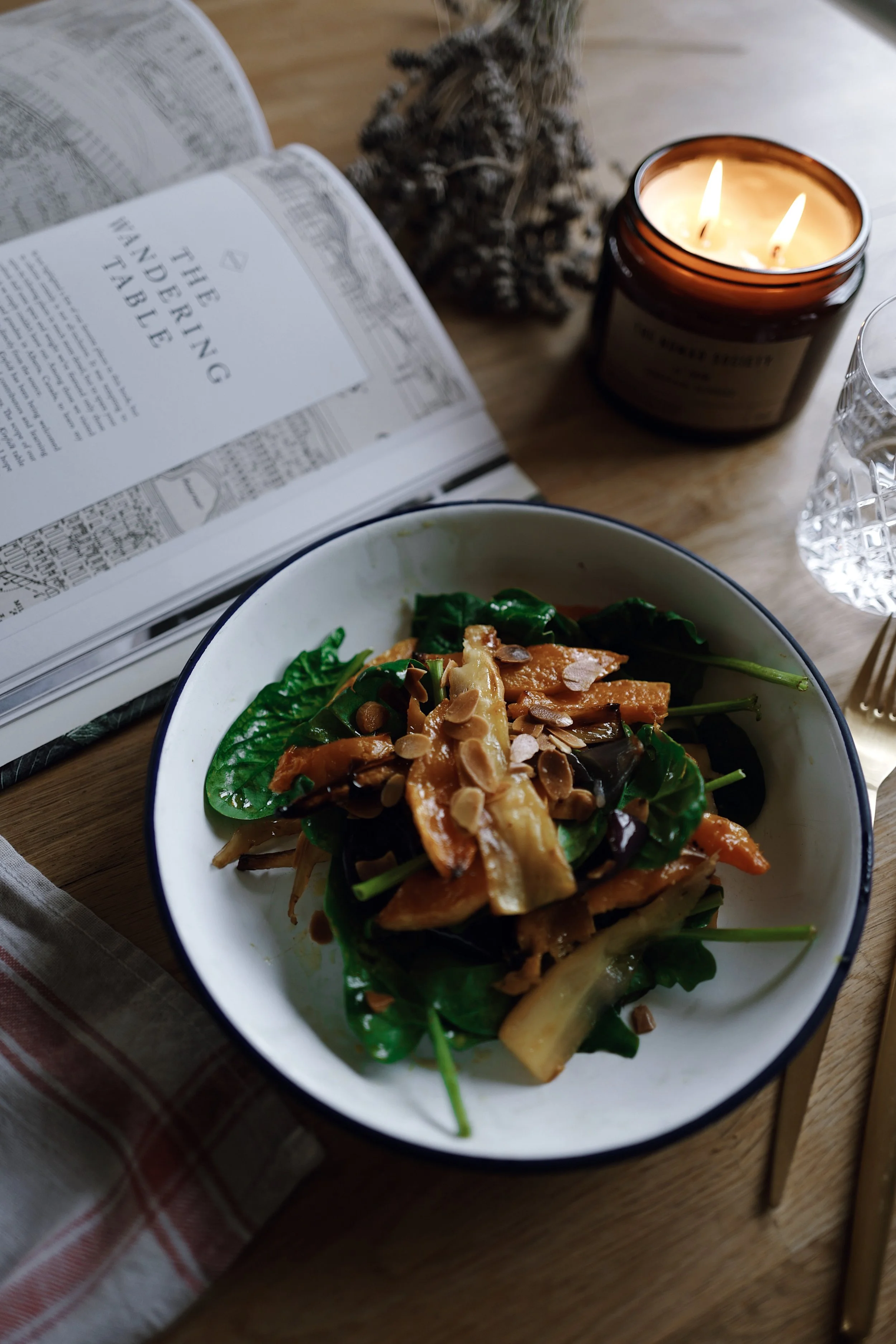On Sunday we make scones

On Sunday we make scones.
“Baby!”, he shouts from the kitchen with a tray of fresh made scones. Feeling particularly lazy, I break free from the sofa that seems to have me tied down.
Milo, our dog, who slept snugly in the curve of my waist, snarls, troubled by the inconvenience I cause by getting up. Outside, the rain caresses the wooden fence where the neighbor's cat balances with acrobat mastery. Milo rises his head as he detects the cat's presence. Appalled by the cat's invasion, barks furiously hoping to drive him out of his territory. Indifferent to his barking, the cat strolls on top of the fence, back and forth, displaying its agility in a ritual of provocation towards its enemy.
“Stop it”, orders Martin. Milo doesn't dare to challenge his authority and returns to the couch, feeling restlessness, unable to fall asleep again.
Still yawning, I drag myself to the kitchen.
Making English tea is a science that I have been perfecting. The kettle has to boil full so there is enough water for the pot. It takes three bags of black tea, Yorkshire gold is our favorite. After about three minutes the infusion is ready to be served with a splash of milk. I must be careful in order to splash the right amount. It sounds simple, but the accuracy of the measurements and the intensity of the infusion are central because, for an Englishman, the solution to most of the world's problems begins with a cup of tea.
The scones, cut in half, relieve the heat trapped in the pores of the dough where the cream and the strawberry jam now melt.
On Sunday we make scones.
The English like routine, repetition, habit. They like the choreography of the days.
Forgive me if I have come to mess it all up.
É domingo, dia de scones.
Darling, chama ele lá do fundo da cozinha com os scones a fumegar acabados de sair do forno. E eu, ainda embalada na preguiça de domingo, solto-me do sofá que me amarra pelas ancas.
Milo, o nosso cão, que dormia aconchegado na curva da minha cintura, rosna, incomodado com transtorno lhe é causado. Lá fora, a chuva de todos os dias acaricia a cerca de madeira onde o gato do vizinho se equilibra com mestria de acrobata. Milo levanta-se num ápice ao detectar a sua presença e, apoquentado com a ousadia do gato, ladra furiosamente na esperança de o expulsar do seu território. Indiferente ao seu latir, o gato passeia-se no topo da cerca, para trás e para a frente, exibindo a sua agilidade num ritual de provocação para com o seu inimigo canino. Stop it!, ordena Martin. Milo não se atreve a desafiar a autoridade do dono e regressa ao sofá mas é incapaz de voltar a adormecer tal é a inquietação.
Eu, ainda a bocejar, arrasto-me até a cozinha.
A mim cabe-me a tarefa de preparar o chá. Fazer chá inglês é uma ciência que tenho vindo a aperfeiçoar. A chaleira tem de ferver cheia para haver água suficiente para o bule. São precisos três sacos de chá preto, Yorkshire gold é o nosso preferido. Ao fim de, aproximadamente, três minutos a infusão está pronta para ser bebida. Depois de servido pinga-se o chá com um bocadinho de leite, mas é preciso ter gentileza para não se exagerar na quantidade. Parece simples, mas a precisão das medidas e a intensidade da infusão são fulcrais porque, para um inglês, a solução para a maior parte dos problemas do mundo começa numa caneca de chá.
Os scones, cortados ao meio, aliviam o calor trancado nos poros da massa onde o creme e a compota de morango agora se fundem. É domingo, dia de scones. Os ingleses gostam do hábito, gostam dos dias ordenados e das tarefas empacotadas nos minutos respectivos. Gostam da coreografia ensaia dos dias.
Perdoa-me se vim desarrumar tudo.
Ingredients:
350g self-raising flour, plus more for dusting;
¼ tsp salt:
1 tsp baking powder;
85g butter, cut into cubes;
3 tbsp caster sugar;
175ml milk;
1 tsp vanilla extract;
1 beaten egg to glaze;
Jam and clotted cream.
Ingredientes:
350g de farinha com fermento;
¼ colher de chá de sal:
1 colher de chá de fermento em pó;
85g de manteiga, cortada em cubos;
3 colheres de sopa de açúcar refinado;
175 ml de leite;
1 colher de chá de extrato de baunilha;
1 ovo batido para cobrir;
Compota e clotted cream ou qualquer outro recheio à vossa escolha.
Instructions:
Heat oven to 220C/fan 200C/gas 7.
Tip 350g self-raising flour into a large bowl with ¼ tsp salt and 1 tsp baking powder, then mix.
Add 85g butter cubes, then rub in with your fingers until the mix looks like fine crumbs then stir in 3 tbsp caster sugar.
Put 175ml milk into a jug and heat in the microwave for about 30 secs until warm, but not hot.
Add 1 tsp vanilla extract then set aside for a moment.
Put a baking sheet in the oven.
Make a well in the dry mix, then add the liquid and combine it quickly with a cutlery knife – it will seem pretty wet at first.
Scatter some flour onto the work surface and tip the dough out. Dredge the dough and your hands with a little more flour, then fold the dough over 2-3 times until it’s a little smoother. Pat into a round about 4cm deep.
Take a 5cm cutter and dip it into some flour. Plunge into the dough, then repeat until you have four scones. You may need to press what’s left of the dough back into a round to cut out another four.
Brush the tops with a beaten egg, then carefully place onto the hot baking tray.
Bake for 10 mins until risen and golden on the top. Eat just warm or cold on the day of baking, generously topped with jam and clotted cream.
Instruções:
Aquece o forno a 220C / ventoinha 200C / gás 7.
Adiciona 350g de farinha numa tigela grande com ¼ colher de chá de sal e uma colher de chá de fermento e mistura.
Adiciona 85g de manteiga e desfaz com os dedos até que a mistura pareça uniforme. Acrescenta 3 colheres de sopa de açúcar refinado.
Coloca 175ml de leite num copo e aquece no microondas durante cerca de 30 segundos até que esteja morno.
Adiciona 1 colher de chá de extrato de baunilha e reserva a mistura.
Coloca um tabuleiro no forno com papel vegetal.
Na mistura seca, adiciona o líquido e mistura rapidamente, vai parecer bastante molhado no início. Espalha um pouco de farinha na bancada da cozinha e pousa lá a massa. Polvilha a massa com um pouco mais de farinha, depois amassa até ficar um pouco mais lisa. Amassa de modo a que fique um género de uma forma redonda com cerca de 4cm de profundidade.
Pega numa forma e mergulhe-a na massa, repete o processo até teres quatro scones. Vais precisar de voltar a reunir a restante a massa para cortar mais quatro.
Com um pincel, cobre os topos com um ovo batido e, de seguida, coloca os scones cuidadosamente no tabuleiro agora quente.
Leva ao forno durante 10 minutos até que comecem a dourar no topo. Come-os quentes ou frios. Pessoalmente eu gosto de os besuntar de compota e clotted cream.
Bon Appétit!
* Non sponsored post. Affiliate links are used in this post. These are my own images and they may not be used for commercial purposes without prior consent. In case of a repost please credit me. This recipe is not mine, it’s from BBC good foods.

